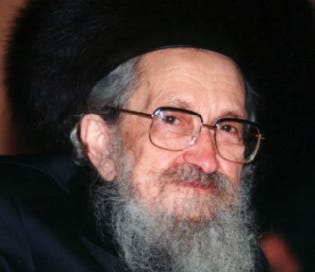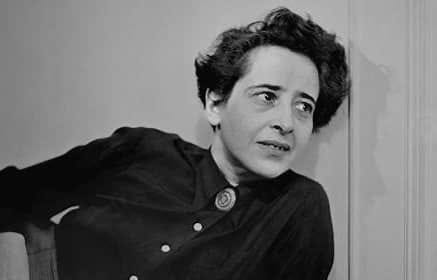Yom Ha-Shoah and an Ultra-Orthodox Response: "The Holocaust was a Crime against Humanity of the Bodies of the Jews" - Hannah Arendt
Reflections on Radical Evil and the Holocaust as "inverted miracle" in the thought of the Hasidic master Shalom Noah Barzofsky of Slonim
Yom Ha-Shoah is not a national Jewish commemoration of the Holocaust. It is a commemoration of the Jewish people for the six million lives lost in the Nazi genocide. I think, however, it should be a Global Day of Mourning for the unleashing of the horrific brutality of human beings on one another (there is a separate International Holocaust Remembrance Day which I suppose serves that purpose). Here Arendt’s assessment rings true, this was a crime of humanity, those that perpetrated it and those who did not prevent the genocide. It does not detract from the fact that this horrific act of brutality is perpetrated on the Jews. As Ellie Weisel said, and I largely agree, “Six million Jews were killed in the Holocaust, millions of others were killed because of the Holocaust.”
The haredi (ultra-Orthodox) world that suffered greatly in the Holocaust were reluctant to agree with the establishment of Holocaust Memorial Day. The reason is that establishing such a day suggested that the Holocaust was a unique event in Jewish history, a notion that they believed countered the covenantal paradigm that all tragedies that befall the Jews are divinely ordained as part of their exilic fate to be rectified in the end-time. Many of these communities recognized the Holocaust on Tisha b’Av, the traditional day of mourning revolving around the destruction of the Jerusalem Temples.
They are not wrong in suggesting that Holocaust Memorial Day may be the first, and perhaps only, Jewish secular commemorative day and the implications of that moved them to reject it.
Ultra-Orthodox Jews generally did not write overtly about the Holocaust although it was implied in many of their writings. For example, Yoel Teitelbaum of Satmar begins his political-theological track against Zionism, Vayoel Moshe with the recognition of the destruction of the Jews in the Holocaust as the worst tragedy that has befallen the Jewish people.
We do have a considerable amount to writing about the Holocaust during the war and immediately after (before it was called the Holocaust) by the ultra-Orthodox sector, many selections collected in the highly recommended volume edited by Steven T. Katz and Gershon Greenberg Wrestling with God: Jewish Theological Responses during and After the Holocaust (2007). And, of course, the collected sermons of Kalonymous Kalman Shapira of Piasczeno published as Aish Kodesh (1960).
In 1987, Shalom Noah Barzofsky of Slonim (residing in Jerusalem) published a pamphlet fully devoted to the Holocaust entitled Ha-Hareigah ·Alekha. The book was conceived by Shmuel Azreil Schwartzman, a Holocaust survivor who decided to publish Barzofsky’s essay, ‘·Al ha-Hashmada ve-ha-Hurban’, an introduction to a larger work, Zikhron Kodesh. This essay was written around 1970. Schwartzman then collected various other chapters and essays related to the Holocaust by Barzofsky and published them together as Ha-Hareigah ·Alekha (referred to in this essay as HA) in 1987.
Barzofsky offers an innovative rendering of the “radical evil” of the Holocaust as an example of “inverted miracle.” In the linked essay below, I explore this idea, putting Barzofsky in conversation with others who wrote extensively about the Holocaust such as Emil Fackenheim. Eliezer Berkowitz, Richard Rubenstein, and others.
May the memory of those innocent lives lost strengthen us to create a world where human depravity can never again, for any reason, be allowed to unleash the demonic forces of genocide.
Shau
l





